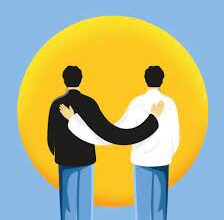
Introduction: What Is An Introverts
What Is An Introvert? An introvert is someone who likes spending time with their own thoughts and ideas more than being in big groups. They prefer having a few close friends instead of being around a lot of people. Introversion is not just about being shy or quiet; it’s a personality type with various characteristics.
The Four Types of Introverts
-
Social Introverts: Enjoying Alone Time
The most common introvert is a social introvert. They like being alone and will choose it on purpose. Even when they socialize, it’s with a small group of friends. This doesn’t mean they’re shy; they just really like their own company. People might think they’re aloof, but it’s just their preference. What Is An Introvert
-
Thinking Introverts: Rich Inner World
A thinking introvert spends a lot of time thinking. They enjoy reflecting on what they see and hear, creating a rich inner world. This doesn’t mean they’re lost in their own world; they’re just great at self-reflection and understanding social situations.
-
Anxious Introverts: Facing Social Challenges
An anxious introvert finds social situations challenging and may even border on social anxiety. They might avoid events not because they like being alone, but because they feel anxious around others. Cognitive Behavioral Therapy can help break negative thought patterns for anxious introverts.
-
Restrained Introverts: Warming Up Slowly
The restrained introvert is less known but common. They take time to open up to people, preferring to observe before revealing themselves. They’re not scared of socializing; they just choose who to trust. Once they trust someone, it’s for a long time. They might seem mysterious, but they’re just cautious.
Understanding Introvert Personality : What Is An Introvert
An introvert personality is all about liking solitude, deep thinking, and introspection. Introverts recharge by being alone, not by being in social situations. They may be quiet in groups, preferring to listen, and might feel overwhelmed by too much noise. Understanding and respecting these traits help create a supportive environment for introverts. What Is An Introvert
Conclusion:
In conclusion, introverts are a diverse group, each with unique traits that go beyond common misconceptions. Understanding and appreciating the various types of introverts—whether they’re social, thinking, anxious, or restrained—can lead to richer connections and a more inclusive environment.
Introversion is not a limitation but a distinctive way of experiencing the world. It’s about valuing internal reflections, enjoying solitude, and navigating social interactions in a way that feels authentic. By recognizing and respecting the preferences of introverts, we can foster environments that allow them to thrive.
So, let’s celebrate the introvert personality—a preference for deep thinking, meaningful connections, and a well-deserved appreciation for alone time. In doing so, we embrace the beauty of diversity in personalities, ensuring that introverts feel seen, heard, and valued in a world that sometimes leans towards the extroverted.
learn more about What Is An Introvert at : https://personalityquote.com/introverted-feeling-vs-extroverted-feeling/



